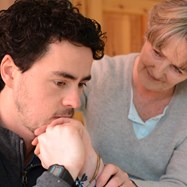Russell Group welcomes 'constructive' report on teaching quality from HEFCE
01 October 2009
Responding to the publication of a report on teaching quality and standards in universities, commissioned by the Higher Education Funding Council for England, Dr Wendy Piatt, the Director General of the Russell Group of 20 leading universities, said:
“Students and staff come from all over the globe to study and work at Russell Group universities. While we recognise that more can be done to bolster the quality assurance system and improve public understanding of university teaching, we must not lose sight of the fact that we have a higher education system which is the envy of the world.
“This report is a serious and constructive approach to the debate on quality and standards. It recognises that academic freedom and autonomy of universities, which includes the responsibility to award degrees and maintain standards, is an essential component of their success, while accepting the importance of public accountability. The UK’s model for quality assurance in higher education is world renowned and is crucial in maintaining the balance between a university’s autonomy and accountability.
“Our institutions are working hard to provide more information on what students can expect from their courses in terms of private study, lectures and assessment style. A number of our institutions have established partnership agreements with students to ensure they are clear as to the kind of learning experience the university offers and the amount of self-directed study required (see notes).
“As this report has rightly stated, the number of ‘contact hours’ in a university course does not represent the quality of the student experience. The UK rightly operates an outcome-based model of higher education where qualifications are awarded based on achieving a certain standard or level of achievement. Measuring the number of hours studied - a measure of input not output - is not a particularly strong indicator of the health of UK higher education.
“Of course, whatever system of describing degrees is in place, whether a traditional classification or an achievement report, the quality needs to be impeccable. After all, the world class reputation of Russell Group universities depends on maintaining excellence and confidence in quality.”
Notes to editors
A number of Russell Group institutions have established partnership agreements with students to provide a clear statement of mutual expectation for the learning experience. For example:
- The Queen’s University Belfast Student Charter – developed by staff and students – establishes the principles which underpin the relationships between students and the University and links to relevant policy documents.
- The University of Bristol’s student handbook contains the Student Agreement which is an embryonic contract. The agreement is intended to provide a framework through which the University and its students can work together to create a positive environment for learning and academic achievement.
- Newcastle’s University’s Student Charter sets out what students can expect from the university as well as what will be expected from them on a number of topics, including the academic programme, academic conduct, assessment and examinations and tutorial support.
- The University of Leeds’ Learning and Teaching Partnership Agreement, which is written in collaboration with students and staff, sets out agreed mutual responsibilities for university, students and schools. The Partnership Agreement features a strong emphasis on students taking responsibility for their own learning and developing and actively participating in their academic experience
-
Hamir Patel
hamir.patel@russellgroup.ac.uk
020 3816 1316
-
Hollie Chandler
Hollie.Chandler@russellgroup.ac.uk
020 3816 1307
 X
X

